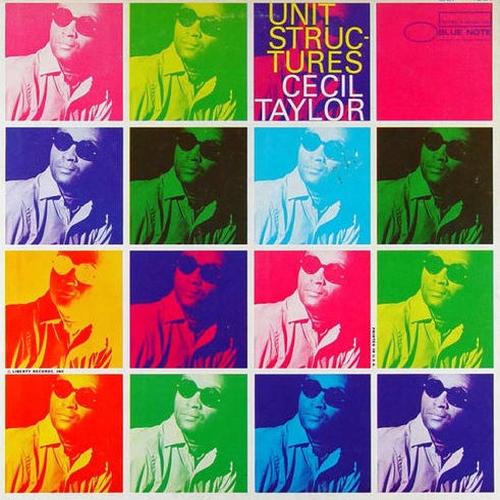Charles Mingus-- ornery, incendiary, and quick-tempered-- was a mountain of a man who produced a mountain of vital music. More than perhaps any other artist, Mingus embodied the past, present and future of jazz all at once, finding the threads that led from the Cotton Club to the avant-garde through everything that came between.
It's a favorite jazzhead pastime to sit around debating which was the best of so-and-so's many bands, and Mingus comes up often in those discussions-- he led bands of every size, shape, and instrumentation over the course of more than three decades. While several of his many masterpieces featured large bands, and he's known as a brilliant composer and arranger with a special gift for texture, he was also one of jazz's greatest bass players and a fine pianist who excelled in small group settings. As to which was his best band, his mid-60s sextet is a serious contender.
The sextet was fairly heavily documented in its day on the stage-- The Great Concert of Charles Mingus, recorded in Paris in April of 1964 and finally reissued in 2004 with the full set list, features this band minus trumpeter Johnny Coles, who was incapacitated at the time with a stomach ailment, and it's one of his strongest recordings. Going back in time a few months from that Paris date, the sextet (Dolphy gets billing on this disc mostly because he was too amazing not to) was coming off a residency at the Five Spot where they honed their interaction and discovered each other's tendencies. They played a one-off show at Cornell, which was lost to the ages until Mingus' widow Sue found a tape.
As a document of the sextet, it's arguably even better than the Great Concert. Unfortunately, there's no mind-blowing version of the latter's "Parkeriana" in this set, but it makes up for that loss elsewhere. For something that was apparently never considered for release, this has pristine recording quality, and it includes all of both sets, nearly filling two CDs with just ten different songs. This set captures the band in an expansive mood, exploring the possibilities of Mingus' ingenious compositions (and a few old favorites as well), and for any fan of 60s jazz, it's a wonder to behold.
The first thing you hear on disc one actually isn't the sextet. It's pianist Jaki Byard playing "ATFW You" (ATFW stands for Art Tatum Fats Waller) on his own to begin the set. The perennially underrated Byard, who was born in the same year as Mingus, 1922, could play deftly in virtually any style. He'd sometimes jump from one idiom to another in the middle of a chorus, stringing together quotes from throughout popular music (such as on this version of "Fables of Faubus" where in his solo he goes from "Yankee Doodle Dandy" to "Lift Every Voice and Sing" to Chopin's "Funeral March" with the ease of someone twirling a radio dial).
Mingus does his own solo thing on Duke Ellington's "Sophisticated Lady". Rock-oriented music fans might hear "five-minute bass solo" and cringe, but this is a truly lyrical reading of the tune that swings effortlessly. The band of Mingus, Coles, Byard, tenor saxophonist Clifford Jordan, drummer Dannie Richmond, and Dolphy on flute, alto sax, and bass clarinet practically plays with one mind on the rest of the tracks, a few of which are truly gargantuan. Their seventeen-minute charge through Billy Strayhorn's "Take the A Train" is like an exploded diagram of the tune, as the band carves it up, the arrangement constantly shifting. Dolphy's trademark extramusical noises make an appearance as he snorts, grunts and audibly breathes his way through the central climax, singing through his sax.
The centerpiece of the entire performance, though, is "Meditations", more commonly known as "Meditations on Integration". The sextet takes you on a half-hour trip through some of Mingus' finest themes, opening with a haunting figure played on arco bass and flute that sounds like something out of a half-remembered dream of Claude Debussy. "So Long Eric", conceived as a temporary goodbye letter for the woodwind player, who had decided to stay in Europe indefinitely after the band's upcoming tour there, would unexpectedly acquire the air of a sad tribute only months later, when Dolphy lapsed into a sudden diabetic coma in Berlin and passed away at the age of 36. The impact of the loss of Dolphy so early is incalculable-- he was a truly original voice on any instrument he touched and cut precious few sessions as a leader.
And that's a part of what made the sextet so special-- it was a band full of distinctive instrumentalists who together made something on the borderline of magic. This set captures them at their finest, still caught in the adventure of learning, but sure enough to make every note count.





















